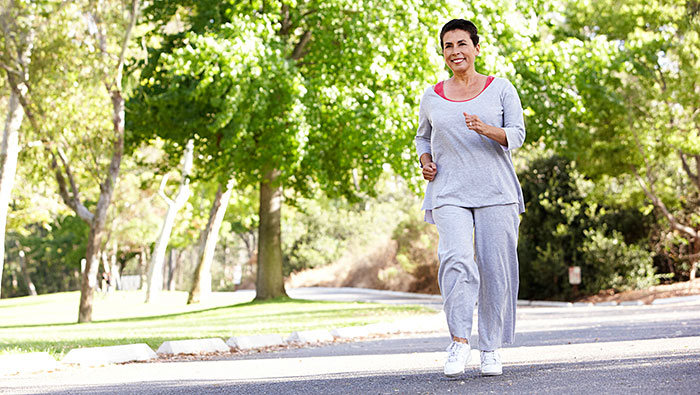Tips to Combat Depression After a Stroke

Depression is common following a stroke. One third of stroke survivors develop depression, with symptoms often developing in the first year.
A stroke can also take a toll on the caregiver. In fact, studies have shown that 40% of caregivers of stroke survivors have symptoms of depression. Fortunately, research also suggests that a caregiver’s positive attitude can help combat a stroke survivor’s depression.
A spouse or partner often plays a vital role in the stroke survivor’s recovery, so it’s important that they also get support and make their emotional health a priority.
Here are some tips for stroke survivors and their caregivers to help prevent depression during stroke recovery.
Take care of yourself
If you’re a caregiver and find yourself forgetting to take time for yourself, you’re not alone. However, your stroke survivor needs you to be healthy and strong. So, make sure to get plenty of sleep, eat a healthy diet and exercise. These things can help fight depression.
Take breaks
It can be hard to take time away from caregiving, but in the long run, the respite is helpful for both parties. Taking some solo time will reduce your stress so you can come back calmer and more refreshed.
Help the stroke survivor identify things that are within their control
It can be easy to focus on loss following a stroke. One method that may be helpful in reducing depression is to focus on the things that remain within the stroke survivor’s control. Point out that there are still many things in life that are within their control, such as taking medication, going to appointments, socializing with friends and family, going to rehabilitation and more. Remind them that they still have an active role in their own life.
Acknowledge the loss
While it’s helpful to focus on the positive, it’s also important to acknowledge and accept what’s been lost. Grief and negative emotions are a natural part of recovery — for both the stroke survivors and the caregiver. This should be recognized, whether it’s on your own, with a loved one or through therapy.
Stay active and social
Depression and physical limitations can pose a challenge to social engagement. But it’s important for both the stroke survivor and caregiver to remain active.
Both stroke survivors and caregivers should reach out to their health care professionals to access resources for emotional support. Good patient-caregiver relationships and good expressive social support can help to lower depressive symptoms.
You can also check out the American Heart Association’s Support Network Stroke Forum. This forum is available day or night for stroke survivors and caregivers to ask questions, get support and share their journey.





